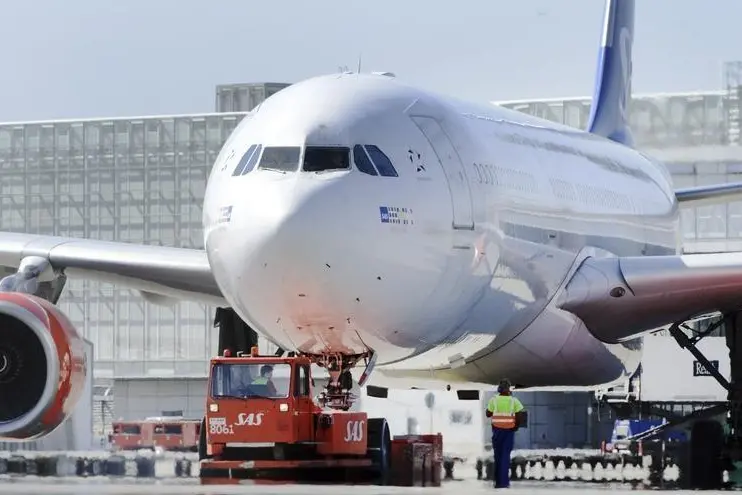PHOTO
The international air travel industry continues to be “hugely depressed” and is heading into a slow winter season, as the second wave of coronavirus cases and return of travel restrictions dampened passenger confidence, the International Air Transport Association (IATA) said.
The air transport body reiterated its call for the governments to reopen their borders and remove restrictions, citing that carriers around the world are still “burning through cash” despite attempts to re-open businesses and revive the economies.
In the Middle East, home to some of the world’s biggest long-haul operators, passenger demand fell 92.3 percent in August, while capacity collapsed 81.9 percent and load factor sank nearly half (47.1 percentage points) to 35.3 percent, the air transport body said. Carriers in the Asia Pacific, North America, Latin America and Africa also witnessed a similar trend, with the decline in demand hovering above 90 percent.
The air transport body also revised its forecast for 2020 and now expects full-year passenger traffic to fall 66 percent, compared with the earlier estimated decline of 63 percent.
“The near-term industry outlook has actually gotten darker… The industry is heading into the slow season in the worst financial position in its history,” Alexandre de Juniac, CEO of IATA said in a press briefing on Tuesday.
Airlines saw passenger traffic plummeted to record lows in April when global coronavirus lockdowns were enforced. The markets started to show signs of recovery in the domestic sector after the restrictions were lifted, but international passenger numbers are still depressed.
“The real problem remains in international air travel… The industry is restarting but it looks as though it’s still burning through cash. It’s still making losses in its operations,” Brian Pearce, chief economist of IATA, said.
Pearce said that the resurgence of COVID-19 cases is discouraging passengers to make travel plans. The latest passenger survey showed that only half of travellers intend to make a trip within the next two months and 15 percent said they wouldn’t book a flight until six months or later.
“Although businesses have regained their confidence as economies unlock, consumers haven’t. Confidence remains extremely low and has recovered only a little from the low point. So, until we see stronger consumer confidence, we fear that the revival in leisure passenger travel will be relatively weak,” Pearce added.
Global figures
In August, passenger demand, measured in passenger kilometres (RPKs), was down 75.3 percent compared to August 2019.
This was only slightly improved compared to the 79.5 percent annual contraction in July.
Domestic markets, however, continued to outperform international markets in terms of recovery, although most remained substantially down on a year ago.
Global capacity, measured in available seat kilometres (ASKs), was down 63.8 percent compared to a year ago, and load factor plunged 27.2 points to an all-time low for August of 58.5 percent.
(Reporting by Cleofe Maceda; editing by Seban Scaria)
Disclaimer: This article is provided for informational purposes only. The content does not provide tax, legal or investment advice or opinion regarding the suitability, value or profitability of any particular security, portfolio or investment strategy. Read our full disclaimer policy here.
© ZAWYA 2020





















